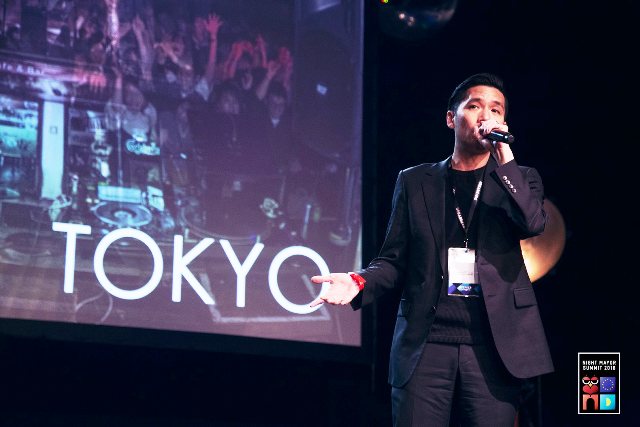JLGC attended the inaugural ‘Night Mayor Summit’ in Amsterdam last month, with JLGC staff Andrew Stevens and Tsutomu Asada on hand to hear from the city Mayor van der Laan on the role of civic institutions in promoting a better night-time economy for residents and visitors alike.

Tokyo was represented at the event by Japanese rapper Zeebra, who now serves as Shibuya Ward Tourism Association’s ‘Night Ambassador’
The summit, held alongside the EU Capital Mayors’ Meeting organised by the Netherlands’ EU Presidency, was aimed at gathering together policymakers and those interested in night-time economies across the world to discuss practical solutions towards better regulation of cities at night and also harnessing the dynamism of night-time entertainment and those who depend on it for their work. As well as a considerable number of ‘night mayors’ from Netherlands cities, the representatives of city governments such as London and Berlin were also in attendance to discuss how their cities can better benefit from the night-time economy. Tokyo was represented at the event by Japanese rapper Zeebra, who now serves as Shibuya Ward Tourism Association’s ‘Night Ambassador’ and is leading efforts within Japan to introduce the night mayor system there, having successfully campaigned for the overhaul of Japan’s dated post-war law which prohibits late night dancing in clubs (which was repealed this month).
In addition to the main summit programme of discussions around introducing night mayor systems in other cities and public health and safety issues, there were also immersive study tours organised by the Amsterdam Night Mayor Mirik Milan and his staff which aimed to show delegates the practical measures the city has put in place to ensure safe (and prosperous) entertainment for international visitors.
Attendance at the summit in Amsterdam was part of a JLGC research project which has been established in recognition of the role that urban nightlife plays in cultural placemaking and the emergence of new urban governance forms with which to regulate and enhance this, including the Dutch night mayor (Nachtburgemeester) system. The project will map and benchmark these governance models and policy transfer, while assessing the wider contribution of urban nightlife to city competitiveness, with the aim of generating policy solutions for city leaders in Japan and their regional economies.

